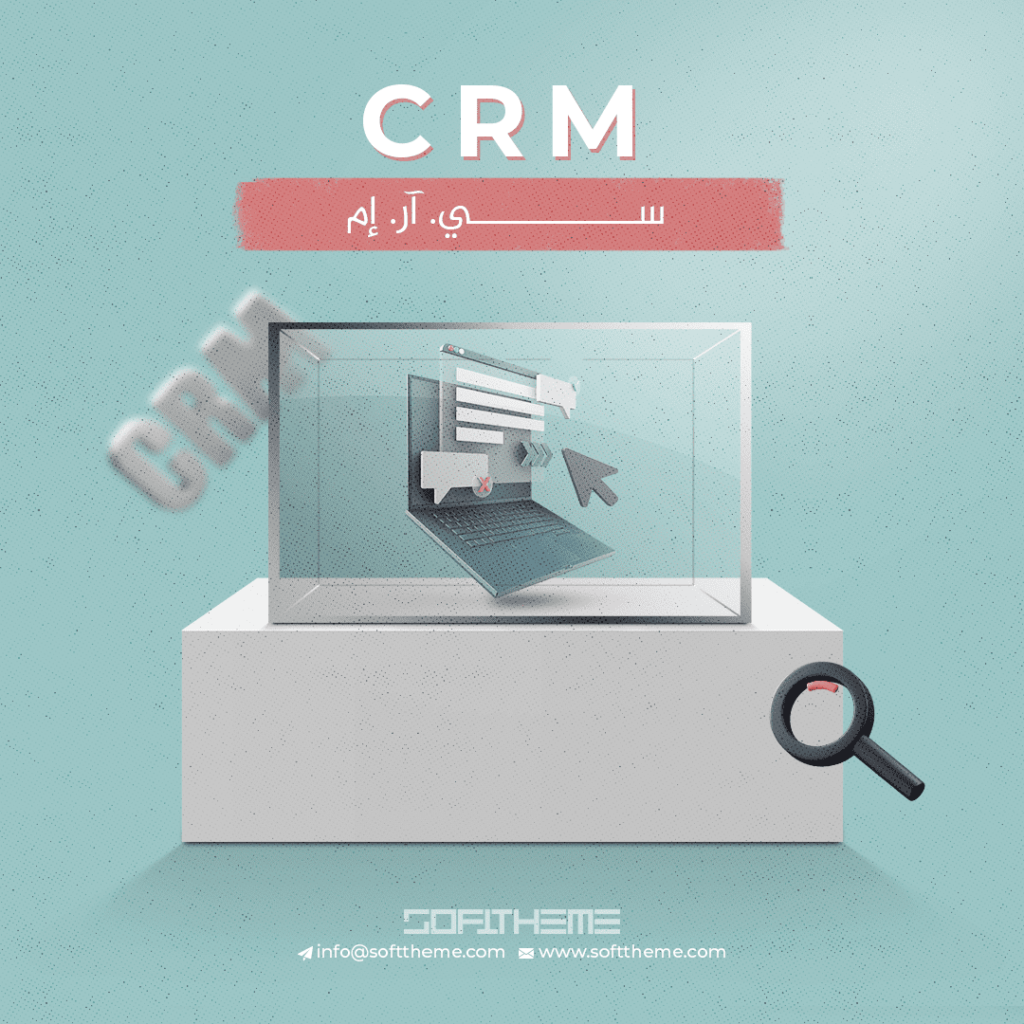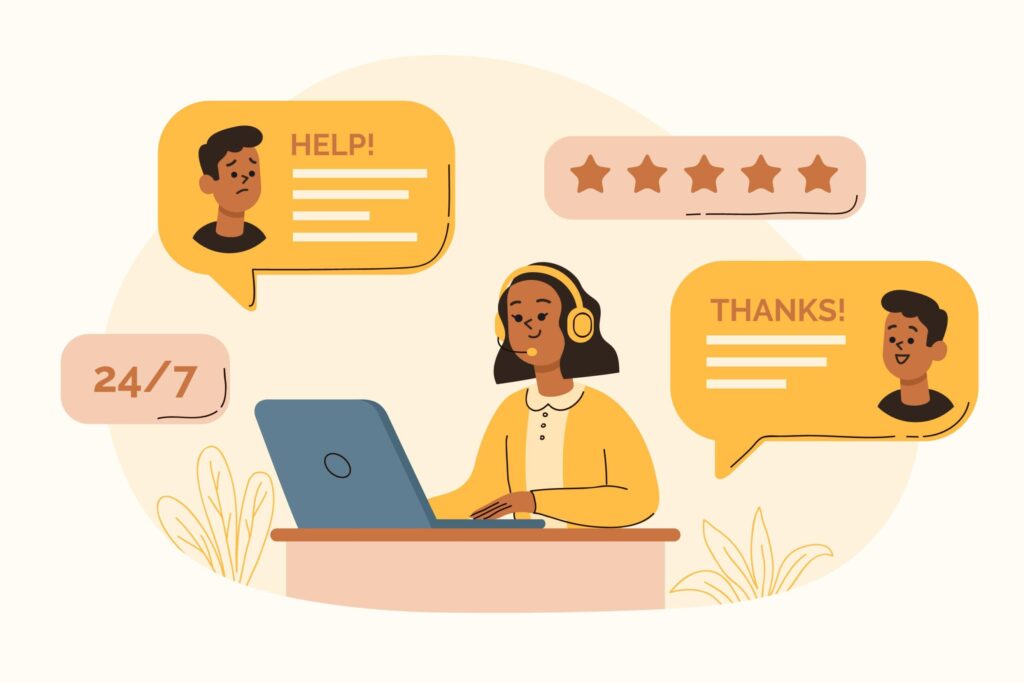CRM Systems

Did you know that customer relationship management (CRM) will reach $43.5 billion worldwide by 2024?
CRMs can be powerful tools that help you accelerate business growth, eliminate friction, collaborate cross-team and manage your contact records, sync data, automate daily tasks, and many other things.
What CRM Systems has to offer for businesses
CRM software offers many benefits that businesses and teams can use.
Mike Catania, CEO and co-founder at Locris stated that not all customers are equal. “The value of CRM helps you retain the right customers and allocate your marketing dollars to the customers that will provide the greatest return over their lifetime.” It can be difficult for small businesses to find and acquire customers, and therefore, CRM bucketing is extremely valuable .”
Businesses of any size can benefit from CRM technology, whether solo entrepreneurs or large corporations. A CRM’s essential functions include communication, central task management, marketing automation, and organization, and these are all critical to any business’s success.
Some businesses will benefit more from a CRM than others.
Businesses with a dedicated Sales Team
A CRM is essential for managing your customers and contacts if you have a sales staff. CRMs can help you grow and improve your sales process by showing you key trends and areas that you can improve and automate tedious tasks for your sales reps.
Businesses with a Marketing Team
Marketing and CRM go hand-in-hand. Your marketing team can use CRM data to identify, nurture, convert, and track leads, track customer-salesperson interactions, and monitor drip campaigns throughout the sales cycle. This can help you create a better customer experience.
Companies looking to improve efficiency
CRMs automate communication and contact organization tasks, which can significantly speed up the day for your entire team. A CRM can reduce errors and ensure all communications reach the right people at the correct time.

CRM Systems Benefits
Better customer service
Although modern CRM software can perform many functions, the primary purpose of this software is to improve business-customer relations. CRM software manages all your contacts. It also gathers vital customer information, such as demographics, purchase records, and messages from all channels. This information is easily accessible to everyone in your company that needs it. It allows employees to have the information they need about customers at their fingertips, which can help them provide better customer service and increase customer satisfaction.
Higher sales
A CRM Systems tool will help you to streamline your sales process, create a sales pipeline, automate critical tasks, and analyze all your sales data in one place. This can potentially increase sales and productivity. You can begin a step-by-step sales process that your employees will be able to rely on and that you can modify as problems arise.
Improved customer retention
After you have converted leads, it is essential to keep them as customers. Customer turnover can lead to decreased revenue and disruptions in cash flow. Make sure you use your CRM and all the data about your customers to encourage repeat sales. To help you quickly resolve customer problems and determine their sentiment, the CRM will offer automated ticketing, customer service automation, customer support automation, and user behavior tracking.
Detailed analytics
Although it’s great to have a lot of customer data, it is not enough, and you need to understand what that data means and how you can use it. Most CRM software has analytic capabilities that contextualize data and break it into actionable items. You can use metrics such as bounce rates, click-through rates, and demographic information to evaluate the effectiveness of a marketing campaign and then optimize it accordingly.
Improved productivity and efficiency
CRM software automates repetitive tasks like drip campaigns, making marketing automation technology more efficient. This software allows employees to focus on the tasks that only humans can perform, like creating content. It helps ensure that essential duties are not neglected (e.g., emails are sent to the right people). A CRM will also allow you to see a picture of your business and identify areas for improvement.
Centralized information database
CRM software provides a central database that stores all customer information. It makes it simple for everyone in your company to access this information. This makes it easy for sales reps to identify the products that customers are most interested in. It will also contain any previous interactions between the customer and the company. Who can use this information to help with future sales efforts? This will make it easy for customers to use CRM and save time for your employees.
Management of communications with potential leads
Lead nurturing is a complex and challenging process that requires many steps and multiple opportunities to communicate. The CRM automates the process by sending alerts to your employees when they should reach the prospect and keeping track of every interaction, including emails and phone calls.
Michael Miller, CEO of VPN Online, stated that “CRM has a great advantage because you can see your customers’ journey holistically.” You can quickly determine the next step by reviewing every email sent and each design phase. It’s almost like looking at it from the top, and you can soon decide what you should do next.

Automated sales reports
dashboard and reporting features allow your team to quickly collect and organize data about current and potential customers. This will enable employees to automate their processes and pipelines. Your group can use CRM to help them evaluate their performance, track their goals, and monitor their progress on all of their projects.
More accurate sales forecast
You should be able to review past performance and plan for the future. Automated sales reports within your CRM software can help you identify key trends, get an idea of your future sales cycle performance, and adjust your goals and metrics accordingly.
Simplified internal communications
Aside from making it easier for customers and businesses to communicate, CRM can also make it easier for employees to interact with each other. It’s easy to see what other employees are saying about a potential customer, and this helps you maintain a consistent brand voice and team identity. CRM allows team members to send and receive messages, send alerts, and tag projects.
If you provide excellent customer service, your customers will become brand ambassadors. They will also refer your company to their friends, family, and associates. Directing customers to your company will result in more satisfied customers and higher revenue.


 العربية
العربية Turkish
Turkish Français
Français